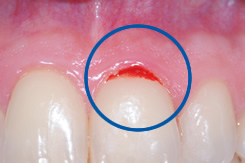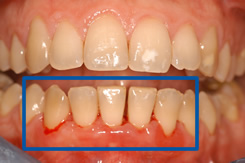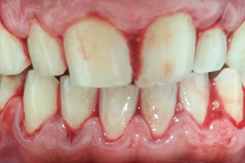Gum bleeding is not a disease, but it is a symptom of a possible pathology.
Gum bleeding is not a disease, but it is a symptom of a possible pathology. If gums bleed spontaneously or more frequently when brushing or chewing solid food it means that inflammation is taking place. There is a mistaken tendency to minimize this problem by attributing it to particularly delicate gums, but in a healthy condition (and with proper brushing), even the thinnest gums do not bleed.


